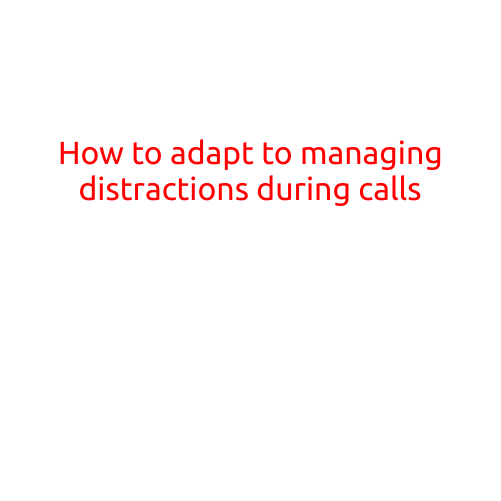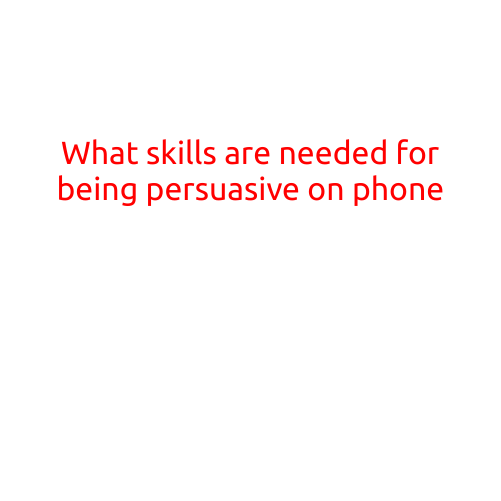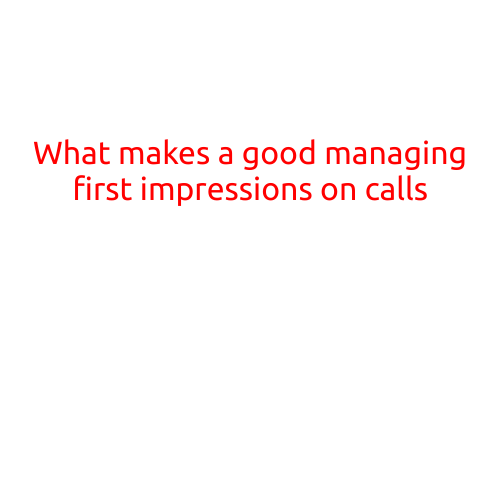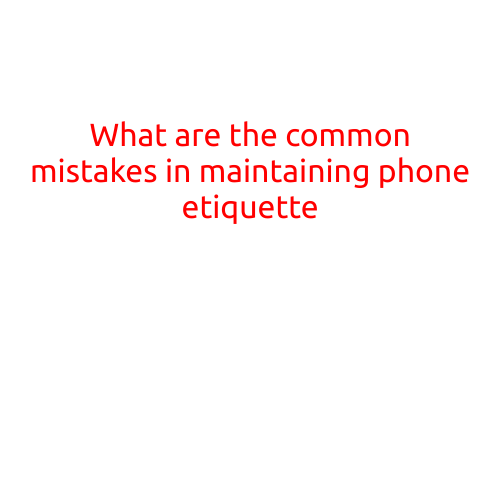
How to Adapt to Managing Distractions During Calls
In today’s digital age, distractions are everywhere, and telephonic calls are no exception. Whether you’re a busy professional or a stay-at-home parent, managing distractions during calls is crucial to ensure effective communication and maintain a professional image. In this article, we’ll explore the common distractions you may encounter during calls and provide practical tips to help you adapt and stay focused.
Common Distractions During Calls
Before we dive into the solutions, let’s identify the common distractions you may face during calls:
- Background Noise: Noise from construction, traffic, or family members can be distracting.
- Colleagues or Family Members: Conversations with others can be distracting, especially if they’re nearby.
- Email or Chat Notifications: Ping! Ping! Ping! Notifications can’t help but grab your attention.
- Desktop Disruptions: Social media, email, or browsing can be a constant temptation.
- Physical Discomfort: Uncomfortable seating, poor lighting, or overwhelming temperatures can affect your focus.
Strategies to Manage Distractions During Calls
Now that we’ve identified the common distractions, here are some effective strategies to help you manage them:
- Dedicate a Quiet Space: Designate a quiet, private area for calls, free from distractions.
- Pre-Call Preparation: Before the call, eliminate distractions by shutting down unnecessary tabs on your computer, silencing notifications, and finding a comfortable seating arrangement.
- Use Headphones: Invest in noise-cancelling headphones to block out background noise and reduce distractions.
- Take Notes: Write down important points during the call to help you stay focused and avoid distractions.
- Practice Active Listening: Focus on the conversation and respond thoughtfully, avoiding the temptation to multitask.
- Set Boundaries: Communicate your availability and boundaries with colleagues, family members, or roommates to minimize disruptions.
- Stay Organized: Keep essential documents and materials within arm’s reach to reduce the need to search during calls.
- Take Breaks: Schedule breaks between calls to recharge and refocus.
- Use Technology to Your Advantage: Utilize call management software or apps to help you stay organized and focused.
- Practice Mindfulness: Regular mindfulness exercises can improve your ability to stay present and focused during calls.
Conclusion
Managing distractions during calls requires intention, discipline, and practice. By identifying common distractions, implementing strategies to minimize them, and staying organized, you’ll be better equipped to adapt and stay focused during calls. Remember, effective communication is key to building strong relationships and achieving business objectives. By minimizing distractions, you’ll be able to maintain a professional image, engage more effectively with others, and achieve your goals.
Additional Tips
- Set a timer to remind yourself of the call duration and stay on track.
- Use a call tracker or timer to monitor your call efficiency.
- Review your calls after they’re completed to identify areas for improvement.
- Continuously practice and adapt to minimize distractions and improve your call management skills.
By implementing these strategies and tips, you’ll be well on your way to mastering the art of managing distractions during calls. Happy calling!





